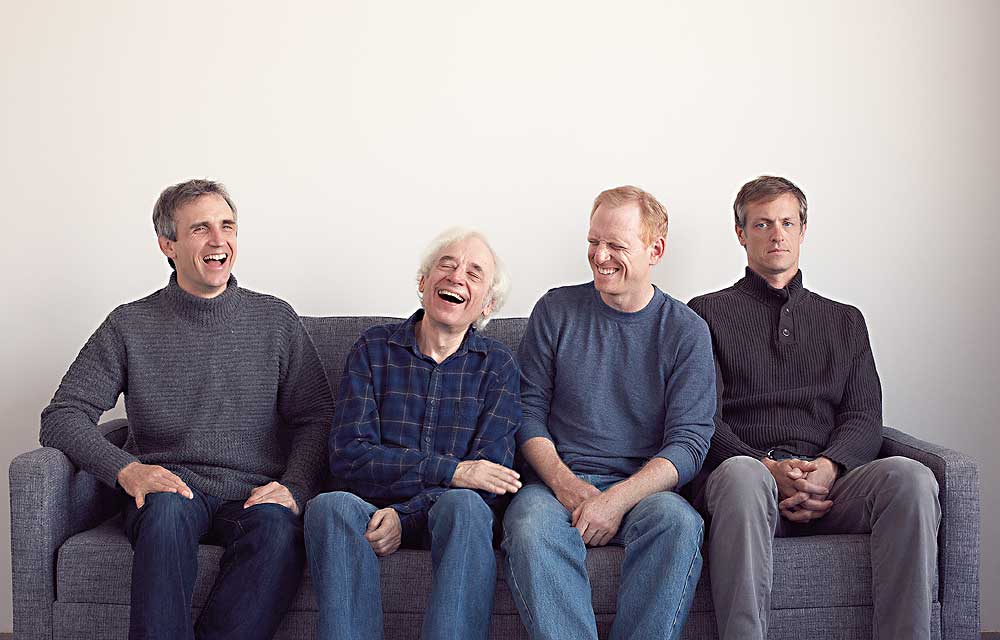
COLUMBUS, OHIO: In my college days I voraciously consumed Race Traitor, a journal whose motto was “Treason to whiteness is loyalty to humanity.” I was looking for how to be a decent human being in the world, given my compromising raw data: white, male and heterosexual. I wanted to toss my privilege (though admittedly not myself) into the fire, if I could only find the right prescription for how.
I confess I still haven’t struck the balance. Neither has the world. Enter Young Jean Lee and her theatre company.
Lee brings her sharp eye and loyal ear to this dilemma in her newest play, Straight White Men, which has its world premiere April 10—13 at the Wexner Center for the Arts in Columbus. Lee, who never shies away from the difficult or the uncomfortable, is once again swimming headfirst into the dangerous undertow of what she calls “the worst possible play.” It’s her oft-pronounced propensity, since her early work, to face down and follow through on seemingly bad ideas.
“I’ve never been someone who wanted to make ‘identity politics’ art,” Lee explains. “And early in my career I resented people who expected me to make it.” Indeed, Straight White Men is hardly her only play to confront those expectations. Her first big production, The Appeal, also involved a handful of straight white men—in this case the Romantic poets Wordsworth, Coleridge and Byron—sitting around a parlor, a living-room-drama conceit that Lee let fear push her into and upended. Songs of the Dragons Flying to Heaven counterintuitively engaged with her Korean-American-ness, managing to Other-ize everyone, Asian and white characters alike, as well as the audience. “The real motivation behind all of it,” Lee explains, has been “to somehow challenge and change myself.”
Lee’s process for building Straight White Men has involved observing her actors (including such notables as Austin Pendleton and Scott Shepherd) improvising amongst themselves within a circumstance she’s given them: father and sons in the familial home at Christmastime. It’s a priming for their comfort, and for her own anthropological transcriptions, which she processes, rewrites, then feeds back to them. It’s a trademark of Lee’s: observing and capturing people of a group, class, subset, interacting in particular company—where, presumably, they are freest to be their basest, most organic selves. But where there’s still some irreducible repression.
Straight White Men marks Lee’s fourth time showing early work at the Wexner Center. “Chuck Helm is like an artistic parent to me,” says Lee, speaking of Wexner’s director of performing arts. After its brief bow there, the show will take to the road. Among the many differences between Lee and my former Race Traitor–reading self is that it’s not a solution she’s after, not a cure. Rather, as she builds this piece with her cadre of straight white male actors, she’s merely illuminating the small steps forward that the truth and comedy of life as lived can offer.

